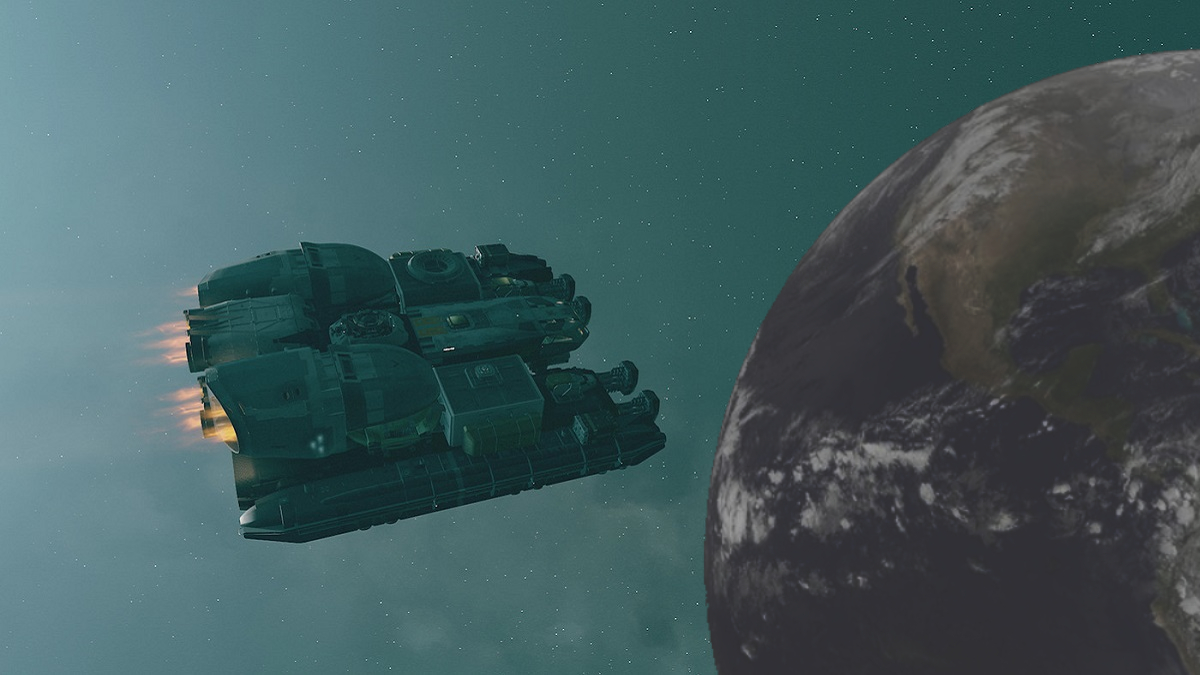It seems a bit odd that I would want to spend any time in Starfield visiting Earth. Humanity is wide-eyed with dreams of discovering new planets, colonizing homesteads among the stars. Our science fiction texts are overflowing with the lofty possibilities of leaving our home world behind to seek a future elsewhere.
Yet, I was intrigued. I knew the backstory of Earth – or at least Starfield‘s version of it – so I wasn’t hopeful about seeing any level of detail. I wasn’t expecting, for example, to land on my street and see how Bethesda had modelled my home. This isn’t Microsoft Flight Simulator, after all.

But still, I wanted to see what it looked like. I wanted to see what kind of outcome one of the world’s biggest video game developers had in store for humanity.
So I landed on Earth. Brazil, in fact. A bizarre choice for someone who’s lived all their life (nearly 40 years) in the UK and has never set foot in any of the Americas. But it didn’t matter. What I was greeted with was a desolate plain of non-life, a barren outstretch of what was once our collective home.
It was then I was struck with a couple of thoughts.
The prophetic way Starfield depicts Earth
First of all, I understand this version of our planet does have iconic landmarks you can visit, albeit now ruined. However, my time on Earth in-game was short, so I didn’t get the chance to seek out any recognizable or historically significant buildings.
What I saw in Starfield could easily have been any other place besides Earth. As far as Bethesda is concerned, Earth is almost a non-entity in the future, a player who’s exited the universal playground. This is, for want of a better phrase, a grim reality that Todd Howard and his team saw fit to actualize.

I don’t intend this article to be a preachy warning about the inevitability of climate change. However, popular fiction often chooses to depict Earth in the future as a planet no longer habitable. Starfield saw fit to lay out our home as one that only had 50 years of livability before its atmosphere vanished into the cruel darkness of space.
To quote Sarah Morgan: “Earth is more or less a dust ball now.”
And that’s exactly what I saw. To really drive the point home, I relocated myself to what used to be the United Kingdom. The outcome was the same. The vast emptiness, a kind of visual foretelling of what lies in fate for us here on the real Earth. There wasn’t even a Wetherspoons nearby.

I may have had a couple of beers by this point, but stepping out of my spaceship onto a planet I should have recognized – only to be greeted with a radial plane of nothingness – was sobering. Even if climate change wasn’t a thing, to see a fictionalized facsimile of your home world reduced to a ball of dust delivers a feeling of isolation that’s hard to truly convey in other media.
My character has no link to Earth
From a story perspective, my character has never known a planet called Earth. As far as he’s concerned, Earth is just another ball of rock floating in the quiet hum of space. With little information besides a brief summary given by Sarah Morgan, this once home to every human being in existence is just a part of wider history.
For us, here in reality, Earth is humanity’s identity. Without this planet, we cease to have one. Yet my character will never know the horror of this. The seemingly endless stretches of land that were once significant to Earth are just that. They have zero emotional significance to the game’s main character.

That in itself is quite a solemn thought. Every single thing that we’ve ever done since time immemorial (including playing Starfield) has been done on Earth, a product of it, in fact. Every piece of art, natural disaster, every memory we have comes from this planet. It’s literally alien to think of that not being the case.
For my character (whose name is Ring Ding because I clearly take role-playing very seriously), there’s zero knowledge about what happened during humanity’s reign. All that history right up until we left the planet exists in the memory of everyone who plays the game, just not in his.
It’s history that culminates in who we are, whether we like it or not. Ring Ding sets foot on an empty portion of a lifeless world with no context, even if he’s part of that lineage. And all that evidence – save for in books – has vanished. History is history, and my character doesn’t even know it.

There’s a conflict here; playing as a human yet being completely alien while on Earth. The emotional significance of this once-inhabited planet is lost on anyone in Starfield who visits. Even if this is where humanity started, the lack of a direct link or context creates a disconnect that doesn’t register with us.
Ring Ding is an otherworldly – yet still human – being, visiting a recreation of something they’re barely aware of in passing. Anyone who’s had to admit to a crowd of people that they’ve never seen a Star Wars film probably knows this feeling.








